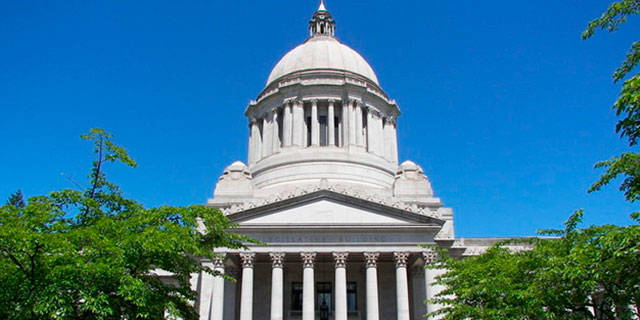Washington state lawmakers will meet for the scheduled 105-day regular session beginning on Monday, Jan. 14.
Their main responsibility will be to adopt a two-year operating budget, along with transportation and capital construction spending plans, but other issues will also take center stage during the course of the session.
Overall, members usually introduce more than 2,000 measures during the first session of a new biennium.
More than 75 bills have already been pre-filed and made ready for introduction on Jan. 14.
Among the subjects of these bills are gun regulation, school safety, mandatory motorcycle helmets and licensing of trendy new liquor products.
WashingtonVotes.org, a free public interest website, provides an overview of all new bills, including pre-filed bills, shown under the “Recent Activity, Newest Descriptions” tab on its home page.
On Dec. 13, Gov. Jay Inslee announced his spending plan for the 2019-21 biennium that includes a $54.4 state operating budget, to be funded in part by $3.7 billion in additional taxes, including a new 9 percent capital gains income tax. The governor’s proposed budget represents an increase of more than 20 percent over the $43.7 billion approved by lawmakers and the governor in 2017.
The governor’s proposed taxes would be imposed on top of the $50 billion in revenue that budget planners expect the state to receive under current taxes.
Democrats in the legislature have discussed capital-gains tax proposals in previous sessions, but have not voted on such proposals. Republican lawmakers have consistently opposed a capital-gains tax, saying it would be a tax on income that violates the Washington state constitution.
Research released earlier this year by Washington Policy Center confirms that every state that imposes a capital gains tax and the Internal Revenue Service classify capital gains as income.
As a result of this November’s election, Democrats have increased their hold on the state House of Representatives to a 57-41 margin (up from 50-48) and on the Senate to 28-21 (up from 25-24), but action on specific spending and tax proposals will still likely be contentious, possibly pushing the session past its scheduled April 28 adjournment date.
Tax increases, especially, may not fare well, because Washington has continued to benefit from a booming economy. As noted, revenues are projected to climb to over $50 billion for the 2019-21 biennium without any new taxes.
To keep track of all the legislative action, WashingtonVotes.org, as it has since 2001, will once again provide timely, thorough coverage of every bill and amendment, and all recorded votes taken by lawmakers.
The website features essential legislative tracking and look-up tools, including:
• A searchable database of all current bills, resolutions, amendments and the votes taken by legislators, along with searchable archives going back to the 2001 Session.
• Timely status updates of legislation on the move, including plain language descriptions.
• Free, weekly Roll Call service to news outlets on key legislation, matched to the legislative districts they cover.
• The “Missed Votes Report,” a popular feature that tabulates the total number of votes taken and missed by individual legislators. The report is distributed to news outlets after session ends, along with any comments by legislators on their voting record
Look for updated legislator profiles and additional pre-filed bill information on WashingtonVotes.org as the session approaches and follow us on Facebook and Twitter #waleg.



